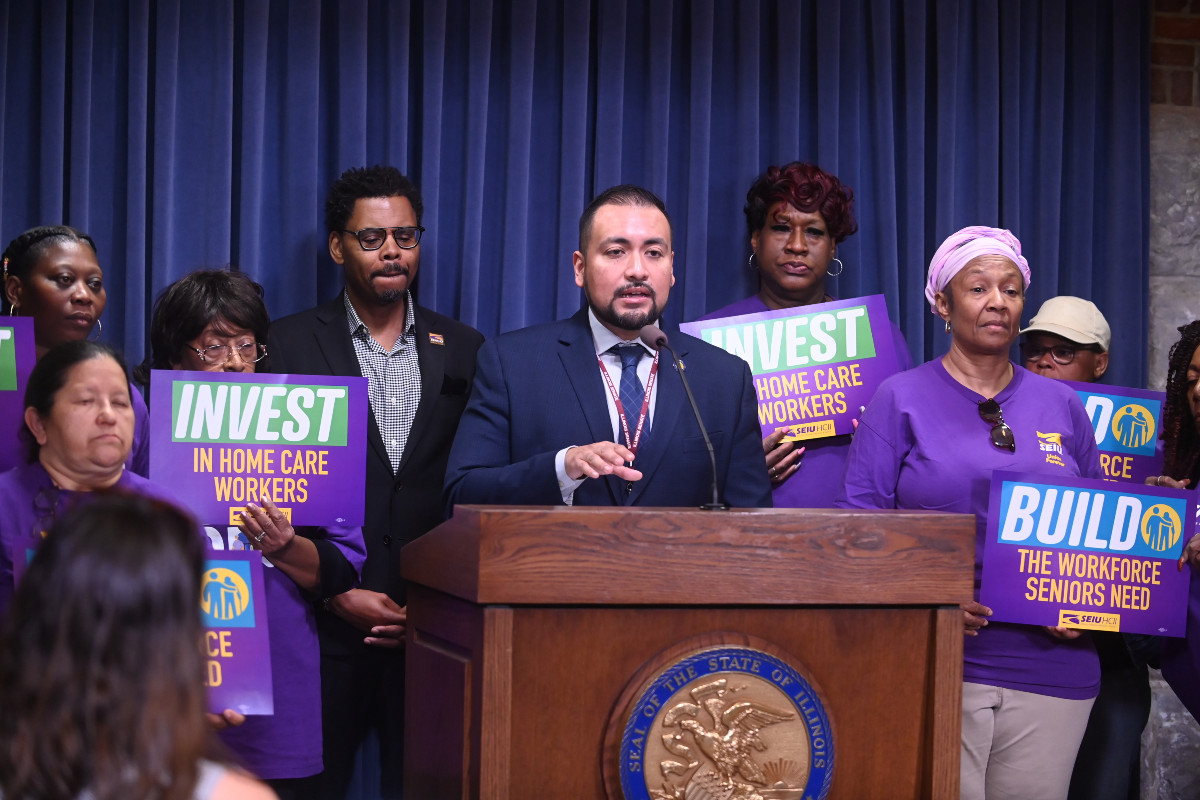
SPRINGFIELD – State Senator Javier Cervantes joined members of the Service Employees International Union at a press conference Wednesday to advocate for higher wages under a new legislative initiative.
“Being a longtime advocate for SEIU has shown me that our home care workers deserve a living wage and deserve to know that Illinois has their back,” said Cervantes (D-Chicago). “Creating a way to incentivize a high-quality home care workforce leads to better outcomes for our residents and provides our SEIU workers with an avenue to a living wage that grows with their experience and essential work.”
Illinois’ Community Care Program allows seniors to receive care and community-based services in their own homes. Thanks to the program, over 100,000 Illinois seniors are able to receive in-home care, allowing them to live independently without the need to move to a more restrictive setting like a nursing home or institution. Currently, only 77% of CCP rates paid by the state go toward employee wages, resulting in a current minimum wage of $17 per hour and leading workers to call on lawmakers to address the low wages fueling the home care workforce shortage.
Cervantes joined SEIU members to advocate for Senate Bill 3332, which would increase Community Care Program homemaker rates to $32.75 to support a minimum wage of $20 per hour for direct service workers. Under the legislation, workers would see 80% of the rate used for their wages. The measure would also incentivize workforce development by creating a 1% add-on payment for CCP providers who pay workers for attending quarterly trainings.
“Our home care workers deserve this investment in their labor, and with the implementation of this increase, we can help so many service workers who are advocating for a better wage,” Cervantes said. “I am proud to represent and advocate for SEIU workers and I will continue to fight for their right to a living wage that can provide for them and their families.”
Cervantes remains committed to advocating for the needs of Illinois’ working families as budget discussions continue during the final weeks of the spring legislative session.
###


